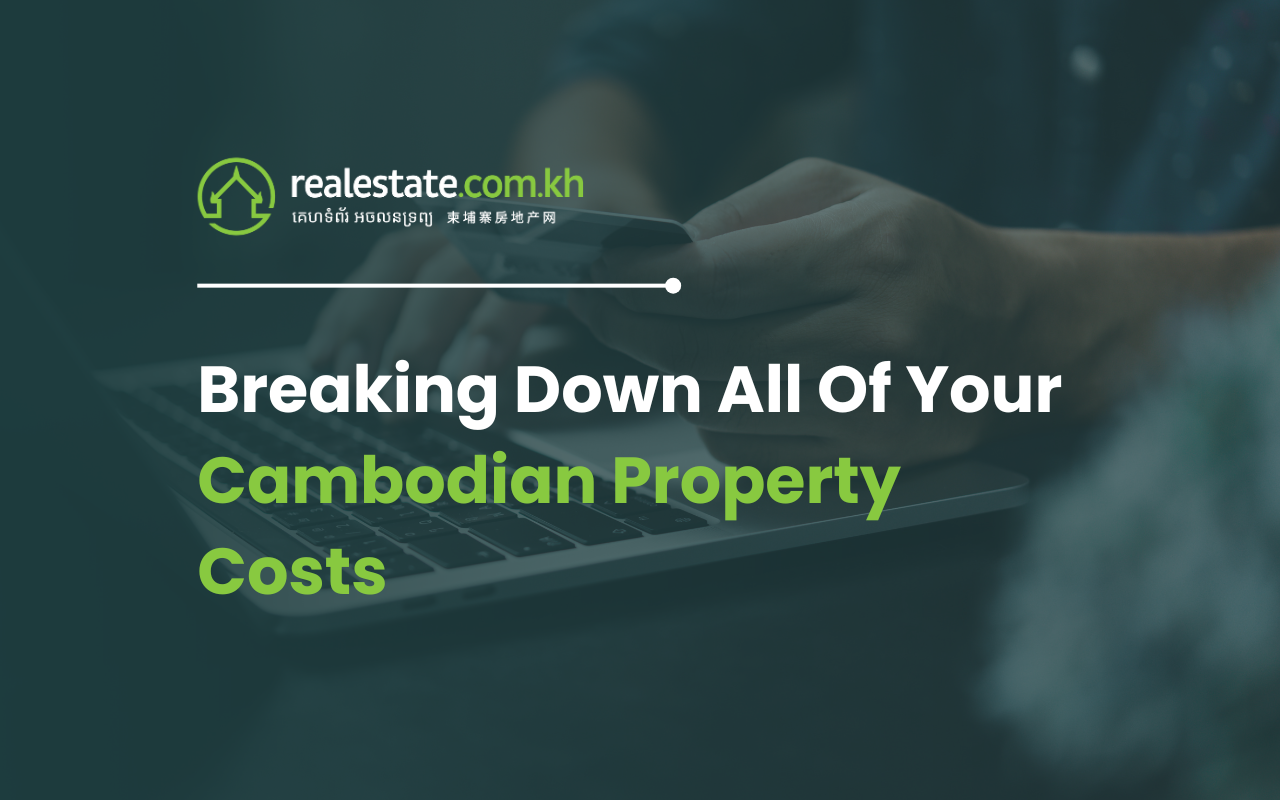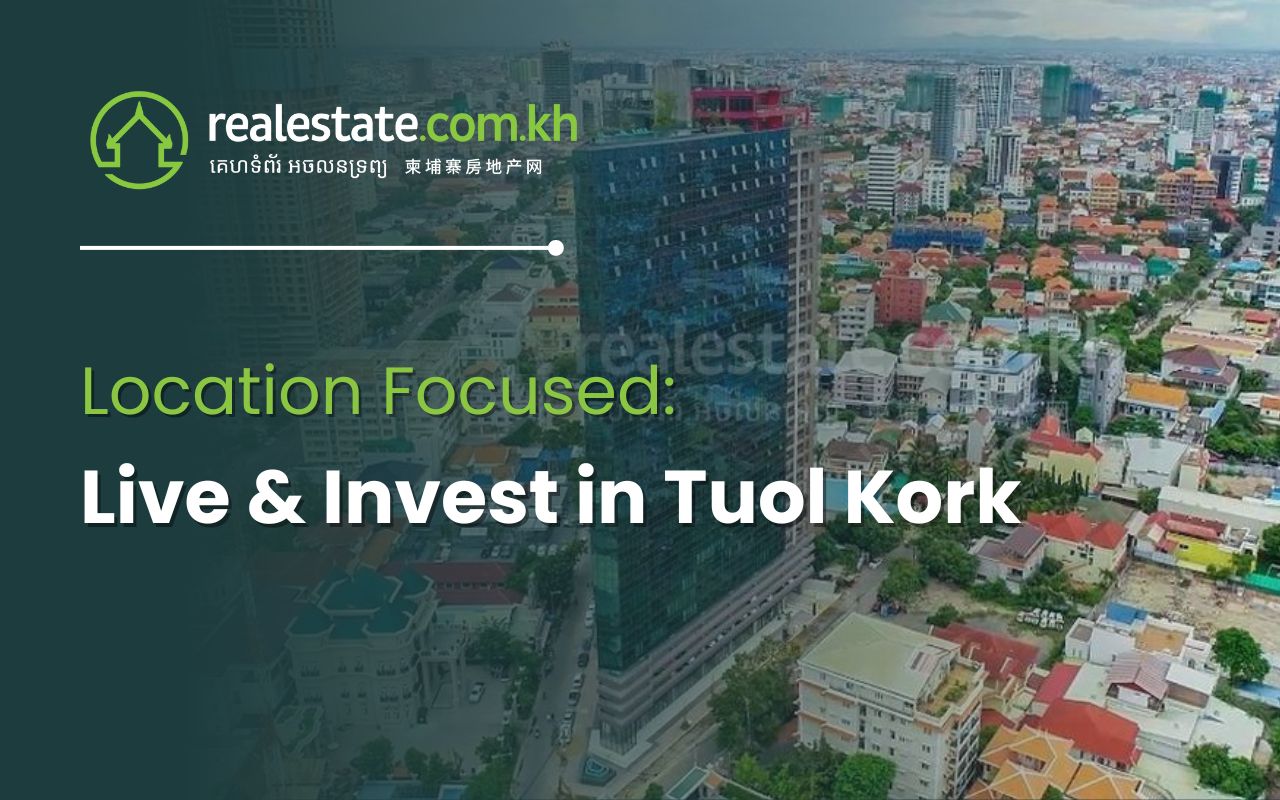

A study of the Cambodian condominium market shows that buyers and developers often forget to take into account the internal regulations and the management of a condominium before purchasing or selling condominium units.
Failure to do so can strongly affect the real estate asset, as internal rules and condominium management can have significant impacts on the value of the units.
Some clarifications on the Condominium Law in Cambodia:
Since the enactment of Sub-Decree No. 126 on the Management and Use of Co-Owned Buildings, dated 12 August 2009 (“Sub-Decree No. 126”), and the Law on providing Foreigners with Ownership Rights in Private Units of Co-Owned Buildings, dated 24 May 2010, the development of condominiums have significantly increased in Cambodia and, in particular, in Phnom Penh.
Indeed, many developments, driven by international and domestic developers, have already been completed and many others are currently in construction with plans to be delivered in 2017 and 2018.
As a consequence, the real estate market in Cambodia provides potential buyers with a lot of options. However, before deciding to purchase, any potential buyer will have to consider various factors, such as the location of the condominium, the description and quality of the materials used, the size and price of the unit, the identity and experience of the developer, and the construction insurance policy.
Two others factors, often forgotten, must also be reviewed as they can have a significant impact on the value of the unit and on the sought-after quality of life in a condominium: the internal regulations and the management of the condominium.
The internal regulations are essential for a condominium and that is why these regulations are compulsory towards all current and future unit owners. They define the rules of life within the condominium and, in particular, the organization and functioning of the condominium on both legal and practical levels.
The purpose of the internal regulations are also to set out the rights and obligations of the unit owners, to define the common areas and the private units and determine their conditions of use, to organize the management of the condominium and determine how expenses, in particular related to the cleaning, maintenance and repairs of the common areas, will be shared by the unit owners.
The Royal Government of Cambodia understands that the internal regulations must be reviewed by a potential buyer before that buyer may decide to purchase a unit. Indeed, Sub-Decree No. 126 provides that the internal regulations must be issued at an early stage of the project (i.e. “before announcing the sale or rental of the private units of the co-owned building”)
Another indicator of the importance of the internal regulations is the fact that they are required by the Land Office for the registration of the condominium and the issuance of the title certificates for each unit.
Therefore, developers and buyers cannot overlook this document which will be in force during the whole life of the condominium and which may be used to resolve many issues which may arise between unit owners in a condominium or between a unit owner and the condominium itself. It is, therefore, important that the language of the internal regulations be comprehensive and precise to allow for the amicable and efficient resolution of any problem that may arise. Sub-Decree No. 126 provides in its appendix a template of internal regulations.
However, this template is very brief and fails to cover many topics such as the use of the common areas, the creation of a contingency fund, the security of the condominium, the powers and responsibilities of the management board, the holding and decisions of the general meeting of the unit owners, and the insurance policies of the condominium, etc.
Consequently, it is highly recommended for developers to request the assistance of a professional (especially lawyers) for the drafting of their internal regulations in order to have a clear and comprehensive document. This will improve significantly the quality of the condominium and will surely give comfort to potential buyers.
Furthermore, it is also recommended, before purchasing or selling in a condominium, to take into account its management.
Indeed, proper management is essential for the good and efficient operation of the condominium so as to not negatively affect the value of the units.
Sub-Decree No. 126 provides that a condominium should have a management board or an executive committee set up to manage the condominium but the sub-decree does not specify when the committee or board should be set up and if they are able to delegate their powers. Therefore, the unit owners are free to choose their mode of management and to organize it in compliance with their internal regulations.
Generally, two options are offered to the unit owners for the management of their condominium. Unit owners can decide either to assume the management functions themselves or they can decide to appoint a third-party property manager who will bring its knowledge and professional expertise.
We have seen in Europe, America and Asia, many cases of bad condominium management due to a lack of qualifications and experience. In these cases, the cleanliness, the maintenance and all necessary repairs and works may not be carried out in time. This always leads to deterioration or damage to both the common areas and private units. This will, of course, ultimately increase the expenses for the unit owners compared to the sums paid for proper maintenance and timely repairs.
We are also aware of many cases where the fees are not collected on time or where many mistakes have appeared in the accounts of the condominium or where inaccurate budgets have been adopted.
All these examples of bad management have always for consequence an increase in the expenses and stress for the owners of units and a decrease in the value of the units. This also almost undoubtedly leads to a unit owner who wishes to sell or rent the unit receiving lower value than where proper management is in place.
Therefore, it is recommended to appoint to management qualified people who have the experience and systems in place to handle financial, legal and technical issues and have resources and relationships to ensure that the condominium runs efficiently.
The duties and obligations of the property manager will depend on its mandate and the provisions of the internal regulations. A property manager can be responsible for day-to-day management duties, including ensuring compliance and enforcement of the internal regulations, carrying out the technical management and all necessary maintenance, work and repairs, preparing the agenda for the general meetings and the annual budget of expenses and collecting the condominium fees from the unit owners.
In conclusion, we would like to highlight that the drafting of the internal regulations and the right management choices are crucial in order to preserve the value of the condominium units and to ensure that the building runs successfully. A high quality condominium building alone is not enough to attract quality buyers and to provide the sought-after quality of life in a condominium. Clear and comprehensive internal regulations linked with highly qualified management and a high quality development will attract investors and tenants.
ON THE AUTHORS
ING Sophealeak and Charles AMAR, lawyers at Bun & Associates, advise domestic and foreign clients seeking expert advice and innovative solutions in dealing with significant and complex transactions involving both raw and developed properties. Their work includes advising on all issues relating to real estate investment, project development, construction, asset management. Our real estate team has also hands-on expertise and experience in advising clients on matters related to economic land concessions, special economic zones, agriculture, the environment and mining.
For further information, contact:
Fax: +855 23 999 566
Telephone: +855 23 999 567
Website: www.bun-associates.com
E-mail: ing@bun-associates.com / amar@bun-associates.com
Address: Bun & Associates#29, Street 294, Phnom Penh, Cambodia, P.O. Box 2326
This publication is for your information only. It is not intended to be comprehensive and it does not constitute and must be not relied on as legal advice. You must seek specific advice tailored to your circumstances. Any use of the information contained in this article or the receipt of this article is not intended to create nor does it create a solicitor-client relationship between you and Bun & Associates. Unless otherwise indicated, Bun & Associates owns the copyright of this article. If you seek to reproduce or otherwise use this article or any part of it in any way, it is your responsibility to obtain approval for such use where necessary.
Interested to purchase properties with high appreciation poteential? Check out our investor guide on the topic!





Comments